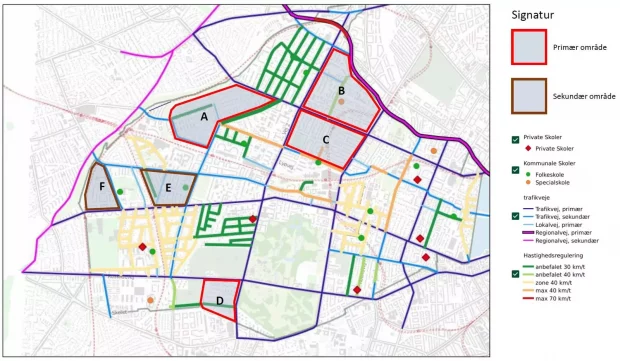In what was an unprecedented ruling, a man from Lithuania was sentenced to prison by the Supreme Court last week for begging at the entrance of Copenhagen Central Station.
The judges ruled that the man’s human rights had not been violated and he was sentenced to 60 days in prison – a verdict originally handed to him by the Eastern High Court.
The 40-year-old man had previously been convicted of begging in various locations, and he had also breached an entry ban to Denmark.
The case has invoked the stringent criminal law change that Parliament passed in 2017 to tackle the rising problem of foreign beggars.
READ ALSO: Cashless banks risk endangering Denmark’s homeless
Judges: not discrimination
Begging at stations, walking streets, supermarkets and public transport can lead to a 14-day stint in prison, while begging elsewhere can yield a warning and a seven-day prison sentence for further offences.
The tougher penalties for begging have only, aside from one case, been used against foreigners.
However, the judges in the verdict ruled it was not discriminatory, but rather a reflection of the overrepresentation of people without Danish citizenship who commit the offences.
Grønningen going greener
The area of Grønningen in the Nordvest district of the city is set to be transformed into an attractive city space whilst also being secured against flooding. Located between Tuborgvej and Hovmestervej, Grønningen is currently not being embraced as a green space by locals as it potentially could be, according to City Hall. So it will be transformed from a plain and open grass patch to a more rugged terrain with paths and hidden corners. The park will also contain more depressions to help handle high amounts of rain during cloudbursts. The 66 million kroner project is expected to commence in March 2023 and be completed by July 2024.
Illuminated gates of Sydhavn
In a bid to brush up Sydhavn a bit, the city has decided to transform worn down Sjælør Station into a colourful area brimming with illuminated artwork. Local residents have complained that the station has been a dark and unsafe area, and the new project will seek to change that. An artist, Søren Hüttel, has been commissioned to create a new station gateway that will involve new bright tiles representing the area: a yellow sun referring to the green area at Vester Cemetery and a sunrise illustrating Sydhavn waterfront. Under the bridge, illuminated artwork will light up the area when it’s dark.
Charging cars at petrol stations
Electric car owners now have the opportunity to charge their cars at ‘normal’ petrol stations in certain parts of Copenhagen. Initially, the option will exist at five Shell petrol stations in the city: in Brøndby, Brønshøj and Kastrup, and on Lyngbyvej and Vasbygade. The five stations were chosen by DCC Energi due to the high amount of traffic passing through them. According to DCC Energi, the electric car charging infrastructure is among the biggest challenges facing Denmark’s electric car development at the moment. The price of charging will appear on the station boards on a par with petrol and diesel prices.
New conservation for Nyboder
One of Copenhagen’s most famous neighbourhoods, the yellow houses of Nyboder, will be given additional conservation status in the near future. The buildings of the area, which have housed Navy and maritime workers for centuries, was originally offered protection in 1918. The latest conservation installment will involve the old cobbled roads that intertwine the area, as well as the area’s backyard spaces. The move will help conserve the area’s historical relevance to Copenhagen and its development over the past 500 years.
Mayor seeks professional help
Copenhagen’s mayor for employment and integration, Cecilia Lonning-Skovgaard, has agreed to seek professional help to improve her behaviour. The news comes in the wake of several media reports shedding light on her ill-treatment of her staff at City Hall. The case started rolling when a number of people were sacked or resigned from her administration and several unions got involved. “I’m only human and have been under a lot of pressure,” Lonning-Skovgaard told Politiken. “I need to work on myself and get better at handling pressure situations so I can keep it internal and not take it out on other people.”
Another man shot dead
Copenhagen’s recent gang war has claimed another life following the deadly shooting of a Swedish man in Vesterbro on February 4. The shooting, which occurred on the corner of Vesterbrogade and Kaalundsgade, came just days after the City Police announced that the gang war between NNV and a Swedish crime network Söderkulla was over. It has since emerged that the slain man was connected to NNV.
Mary’s hospital for children
City hospital Rigshospitalet has announced it will name its future children’s hospital after Crown Princess Mary. The hospital, which will be dedicated to children, young people, expecting women and their families, will be named ’Mary Elizabeth’s Hospital’ and will open its doors in four years. The name was unveiled in connection with Crown Princess Mary’s 50th birthday celebration on February 5. Later this year, the popular royal is scheduled to lay the first cornerstone of the hospital in an official ceremony.
Fewer trees on bird island
The number of trees on the little bird island in Sortedams Sø lake seems to have dwindled recently – most likely due to a group of cormorants hanging out there. The island used to be a little green oasis in the lake, but that has all but vanished following the arrival of the unpopular birds of prey many years ago. Despite the fewer trees and vegetation, it is unlikely that the cormorants will leave anytime soon. The city wanted to scare off the unpopular birds two decades ago, but as it is a protected species, it didn’t happen. The cormorant devours lots of fish and its excrement is very acidic and kills all vegetation in nesting areas. Most head south for winter, but they come back in droves during the summer.
New speed trial in Frederiksberg
Four areas in Frederiksberg could become part of a new pilot project in which speed limits are reduced to 40 km/h. The four areas are the the neighbourhoods around Bernhard Bangs Allé, Moltkesvej and Tesdorpfsvej, the area around Ane Katrines Vej and Kronprinsesse Sofies Vej, and the neighbourhoods of Svømmehalskvarteret and Blomsterkvarteret (areas marked A,B,C and D in image below). Radikale, which is behind the trial, wants to reduce the speed limit to 40 km/h throughout the municipality. The trial project will only happen if the Transport Ministry picks Frederiksberg as one of the municipalities to take part.
















